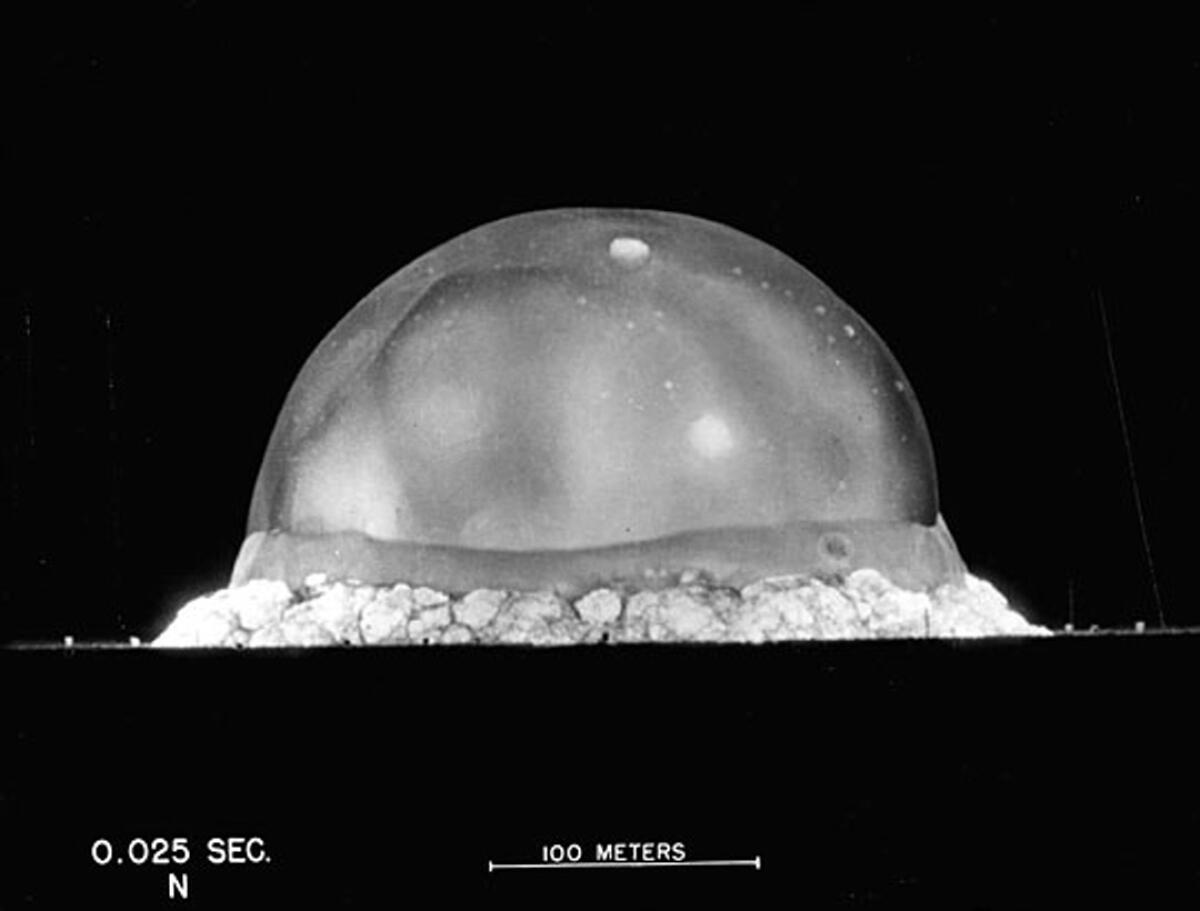Letters to the Editor: History is untidy. So is the truth about the atomic bomb in World War II

To the editor: Perhaps many of us would like to live in a world where history is wrapped in tidy packages of simple solutions. In reality, historical “truth” frequently lies in indefinite territory. (“‘Oppenheimer’ is here. Is Hollywood still afraid of the truth about the atomic bomb?” Opinion, July 20)
Relative to World War II in the Pacific theater, one can play a counterfactual game of continued, unlimited American warfare versus a negotiated peace.
But reputable historians, while not endorsing or condemning the use of atomic warfare, have objectively concluded that there is not enough evidence to support when and how the Japanese imperial government would have eventually surrendered to the Allies in the absence of nuclear utilization.
Moreover, an argument that faults one scientist with the current existential horror of nuclear obliteration is specious.
Within the postwar context of an oncoming Cold War, a conflict that would have occurred with or without J. Robert Oppenheimer’s work, it’s pretty hard to imagine that in the years following World War II, the Soviet Union and other advanced nations would not have eventually built atomic weapons.
Scott Allen, Santa Monica
..
To the editor: You have to wonder about who may have been saved if the atomic bomb had been ready in December 1944. If Berlin had been hit, would Anne Frank have been spared from death in March 1945?
How about the Chinese civilians who lived under a brutal occupation by the Japanese military? How many more of them would have died if they had to wait for an invasion of Japan to end the war?
We know that the Japanese military murdered more than 100,000 men, women and children in retaliation for the 1942 American bombing raid on Tokyo. They did it the old-fashioned way with bullets, bayonets and swords. They killed more people than died at Nagasaki.
My dad was very happy the bomb was dropped and the war ended in August 1945. He was a 21-year-old 2nd lieutenant working as an artillery forward observer. His unit was expected to be one of the first into Japan that fall. Would he have survived that?
We know about the people killed by the bomb. I also think about those saved by it.
James Wilterdink, Chula Vista






